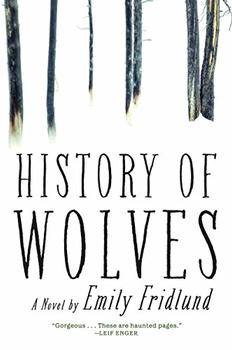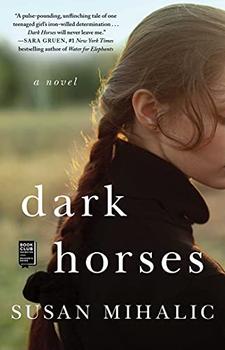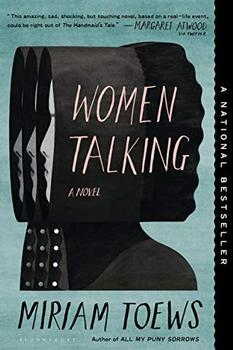Summary | Excerpt | Reading Guide | Discuss | Reviews | Beyond the book | Read-Alikes | Genres & Themes | Author Bio

History of Wolves' narrator, fourteen-year-old Madeline Furston, is adrift in Loose River Minnesota, the "Walleye Capital of the World." She lives in a lakeside cabin with her parents, the sole remaining members of a former commune. Madeline is a lonely girl who feels a kinship with wolves, recognizing something feral within herself that is desperate for expression. Her parents are distant and odd, providing little in the way of authority or guidance. When there are rumors at school that the new history teacher is a pedophile, she throws herself at him, desperate to be wanted. When the Gardner family moves into the cabin across the lake, she becomes transfixed by the glimmer of normalcy that has always been out of her reach.
The Gardners include Leo, a college professor; Patra, his doting wife; and their precocious four-year-old son Paul. Patra hires Madeline as a regular babysitter for Paul and the arrangement is idyllic at first. Madeline is enamored with Patra and fond of Paul, and desperate to tether herself to the bulwark of this traditional nuclear family, but she gradually realizes that something is very wrong. Paul is often ill, and exactly what it is that plagues him (and why) becomes clear as the plot progresses. Patra is a fascinating character as well, though we must puzzle out her thoughts and motivations from Madeline's perspective. Madeline is alternatively attracted to, and repelled by her.
Madeline narrates the story from the future, as an adult, and weaves in details about her later life. It isn't a pretty picture. She has trouble staying in one place, holding down a job, and forming serious attachments with people. It's unclear how fully the young Madeline grasped what was actually happening, and she was certainly bullied by the adults into passivity, but she still struggles with guilt over not adequately helping Paul. From this perspective, Fridlund shows how an action—or in this case inaction—can reverberate through a person's entire life, sowing damage and discord. Madeline's formative years were all too formative.
Fridlund builds tension and dread skillfully with meditative, slow-churning prose. She describes the walleye hibernating under the frozen lake, "barely beating their hearts," the lake itself ever threatening to fracture and break. When the weather turns warm, the heat is "oppressive" and there are forest fires. Madeline's ennui is predatory: "the whole day seemed to bare its open jaws at me," she recalls. While her circumstances give her reason to feel particularly isolated, Madeline is also an archetype of adolescent alienation. Fridlund portrays this feeling accurately, in all its absurdity: "I thought if I slammed the door hard enough, Mr Grierson might come after me. That's what it's like to be fourteen."
This is a compelling and unconventional narrative where we are asked to examine degrees of guilt and complicity. History of Wolves is also unique because the main character is on the periphery of someone else's story, yet no less impacted. Fridlund's only flaw is that she articulates these themes a little more explicitly than necessary, either not trusting the reader to make their own connections, or not trusting that she did her job well enough. If it's the latter, she needn't have worried.
![]() This review was originally published in The BookBrowse Review in January 2017, and has been updated for the
November 2017 edition.
Click here to go to this issue.
This review was originally published in The BookBrowse Review in January 2017, and has been updated for the
November 2017 edition.
Click here to go to this issue.

If you liked History of Wolves, try these:

by Susan Mihalic
Published 2021
A darkly gripping debut novel about a teenage girl's fierce struggle to reclaim her life from her abusive father.

by Miriam Toews
Published 2020
Based on real events and told through the "minutes" of the women's all-female symposium, Toews's masterful novel uses wry, politically engaged humor to relate this tale of women claiming their own power to decide.
Your guide toexceptional books
BookBrowse seeks out and recommends the best in contemporary fiction and nonfiction—books that not only engage and entertain but also deepen our understanding of ourselves and the world around us.